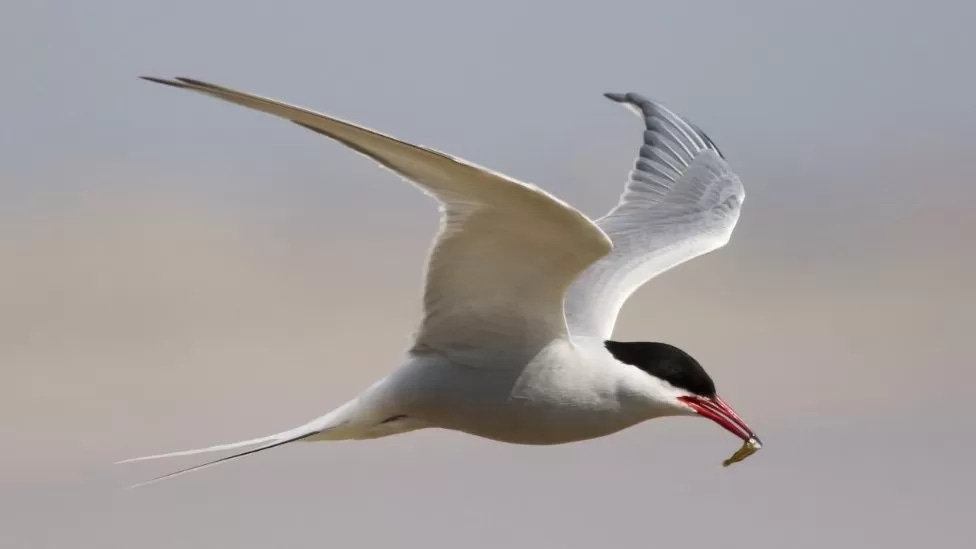Heads-up shooting industry: Avian Flu is still killing wild birds
Disease ripping through UK as more and more pheasants released into countryside
Just last week we posted an article ('World’s tiniest violin plays for shooting industry') about a puff piece for the shooting industry published by the Daily Telegraph.
In our post we pointed out that shooting lobbyists were arguing that the massive releases of non-native birds to be shot should be allowed to go ahead partly because - according to one shoot owner that the Telegraph unthinkingly quoted - Avian Flu was 'declining' and that he had seen "dead geese and dead seagulls, but it didn’t impact the pheasants.”
In other words, if we're just talking about a few dead wild birds that's not reason enough to stop the business of releasing millions of tame ones to blast out of the sky for profit?
That is an unconscionably selfish and stupid statement to make. While the shooting industry is not responsible for the global spread of highly pathogenic avian influenza (HPAI) H5N1 or Avian Flu, pheasants and partridges undoubtedly catch and are vectors for it.
A July 4th ‘bird flu’ update published by Defra warned that
“Whilst the risk level in kept birds has reduced, the risk in wild birds remains high and all bird keepers should continue to take steps to prevent bird flu and stop it spreading at all times and be vigilant for signs of disease.”
On the same date the Welsh government said that "
"Scrupulous biosecurity is the most effective method of disease control available. Whilst the risk to kept birds has reduced, all bird keepers should still follow enhanced biosecurity measures at all times to prevent the risk of future outbreaks."
Avian Flu still a problem
Avian flu ripped through wild birds in 2022 and was still rife in seabird colonies this spring. It is a serious disease with real-world impacts on populations of many threatened wild bird species.
Yesterday (11th July) national media reported that 600 dead Arctic Tern chicks had been found at Long Nanny in Northumberland, the UK's largest breeding colony. National Trust rangers feared an infected bird may have got into the colony and passed on the deadly disease, wiping out years of work building up the colony.
Today (12th July) NatureScot said that Scotland’s Avian Flu Task Force was on high alert following an increase in reports of dead seabirds around their coasts. They reported that in recent weeks monitoring by themselves and partners including the British Trust for Ornithology, RSPB Scotland and the National Trust for Scotland had revealed worrying signs that more seabirds may be succumbing to the virus. In particular,
"there had been a rise in reports of dead Kittiwakes, Black-headed Gulls, Herring Gulls, terns and guillemots being washed up on the east coast of Scotland, stretching from Wick in Caithness to St Abbs in Berwickshire."
Paul Walton, RSPB Head of Species Scotland and quoted in NatureScot's press release. said:
“Scotland’s breeding seabirds declined by 49% between 1986 and 2019 – before the devastating impacts of bird flu began in earnest last year. The outbreak in our wild birds comes on top of huge human pressures and is clearly ongoing. The pattern of impacts is unpredictable and varies across time, space and species."
Avian Flu began in intensive poultry sheds in East Asia and got into the wild through an appalling lack of biosecurity (virus-laden faeces from sheds were sluiced straight into waterways running alongside). The disease has spread across the world now, and every effort should be made to stop any further impact on wild birds. Tipping literally millions of birds into an already stressed environment simply so a few hobbyists with guns can shoot them makes absolutely no sense at all.
Lobbyists trying to convince the public that losing wild birds isn't as important as allowing the shooting industry to continue as normal is an absolute disgrace.
The shooting industry has no conscience. It is a moral vacuum, and it needs getting rid of as soon as possible.
Featured image Arctic Tern, National Trust.
Protect the Wild is working to End the Shooting Industry. For more information please go to End Shooting.




